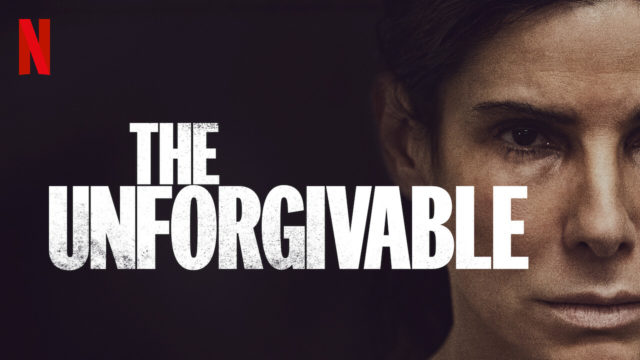By Katelyn Patterson | Reporter
Netflix’s “The Unforgivable” was released in limited theaters Wednesday before its streaming premiere on Netflix on Dec. 10. The film is an Americanized version of writer Sally Wainwright’s 2009 British TV miniseries, “Unforgiven.” The star-studded cast, featuring Sandra Bullock in the lead role, Viola Davis, Jon Bernthal and Rob Morgan, should already turn heads, but the film fell short.
“Following her Berlinale prize winner ‘System Crasher,’ German director Nora Fingscheidt makes a respectable English-language debut with this somber look at the ripple effects of trauma,” The Hollywood Reporter said.
Taking place in Seattle instead of the original Yorkshire, England, Ruth Slater is released from a 20-year prison sentence after killing a police officer who was sent to enforce her eviction. She is thrust back into a society that will not forgive her past, and she has one thing on her mind: finding her sister, Katherine, who was put up for adoption after Ruth’s sentencing.
Bullock takes on a new method in this role, ditching the usual wit and humor that she has made her signature. She is stoic, dead-eyed and boring, although that’s not entirely her own fault. The original TV series was filled with plot twists and turns that are attempted in the movie adaptation. However, they just make the movie entirely unrealistic and rushed. Regardless, the ending is effective, even if it is a bit mechanical.
The Hollywood Reporter said the main issue with the movie is that we’ve seen the same story many times before, this version just isn’t effective.
“Bullock’s performance doesn’t come close, for instance, to the punishing psychological exploration of Kristin Scott Thomas as a woman struggling to readjust to society after 15 years’ incarceration in the haunting 2008 French drama ‘I’ve Loved You So Long,’” The Hollywood Reporter said. “And the forensic detailing of character, crime and milieu in limited series like ‘Mare of Easttown’ has significantly raised the bar in recent years.”
The entire miniseries is similar to that of the movie’s nearly two-hour runtime. The miniseries gave viewers time to digest and understand what was being told rather than having it all play out in one long instance.
“The script similarly leaves other characters less than fully dimensionalized, though all the well-cast actors do good work,” Variety said. “It’s also, in the end, too schematic to pull off the symphonic crescendo of cathartic emotions Fingscheidt attempts to orchestrate.”
In the end, “The Unforgivable” attempts to confront too many bitter realities and ends up muddling them. The cast and direction keep the story compelling, but not enough to remember the film for long.



